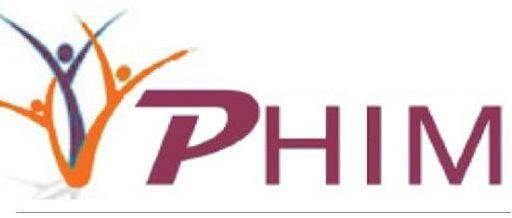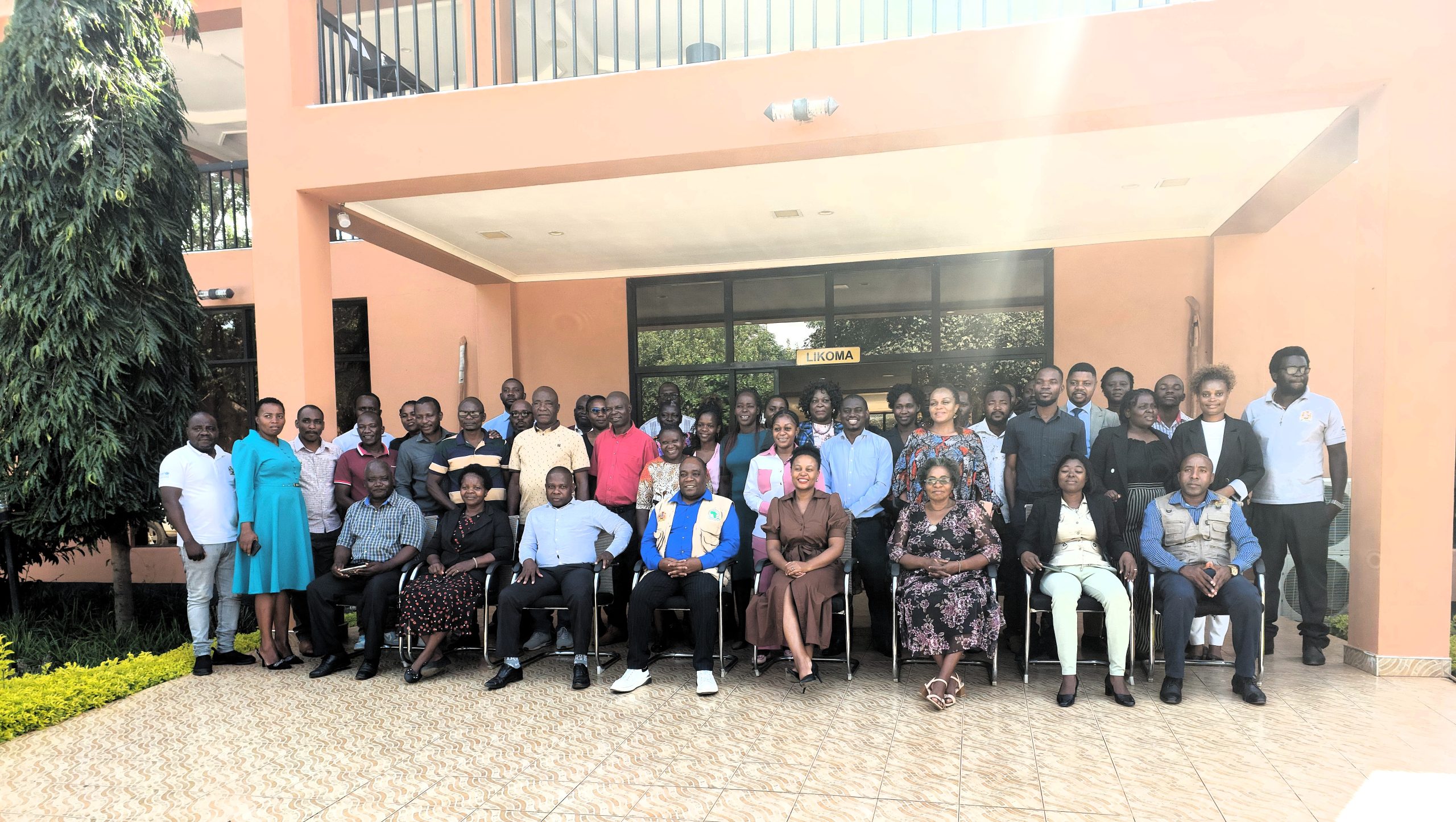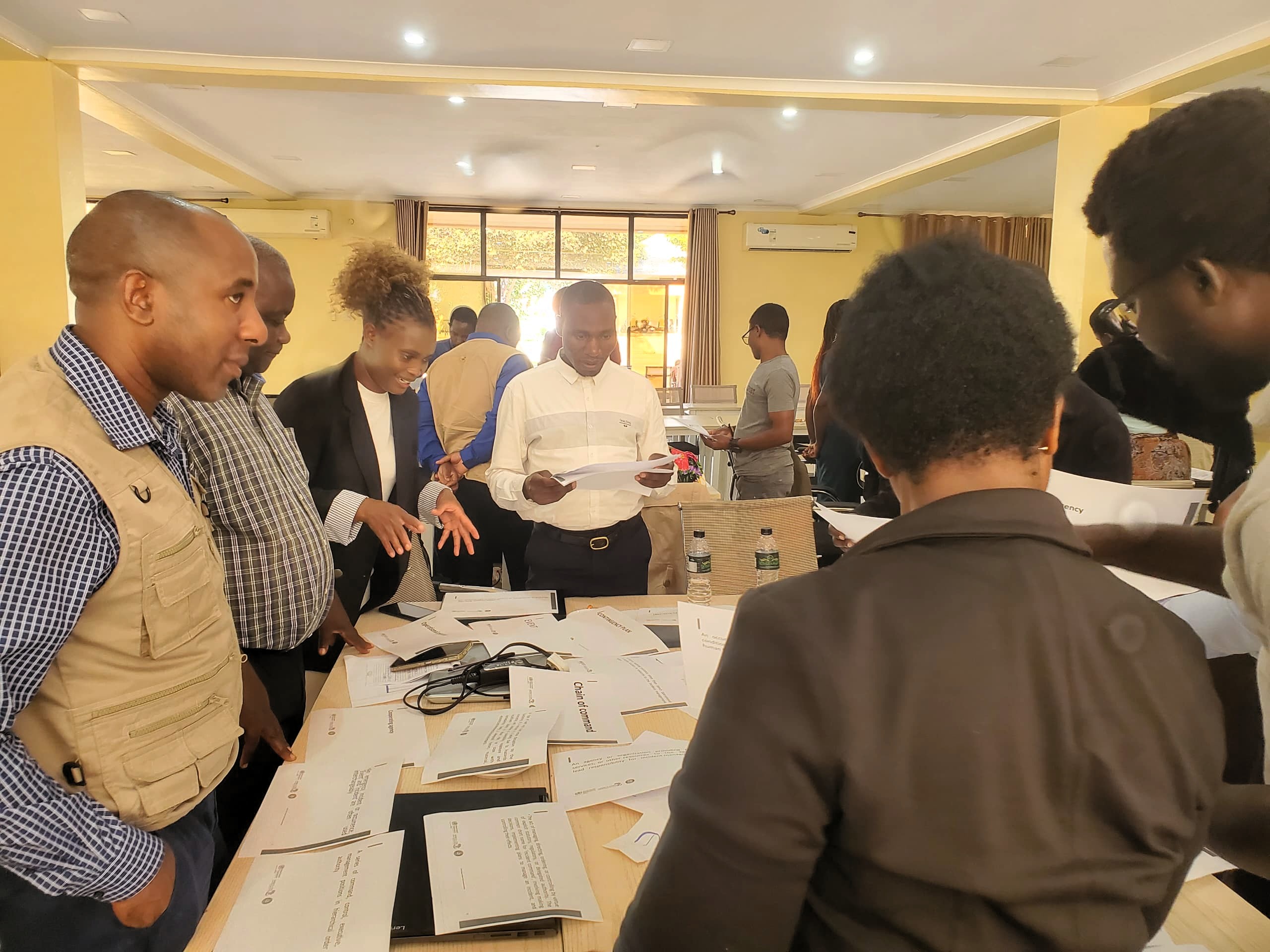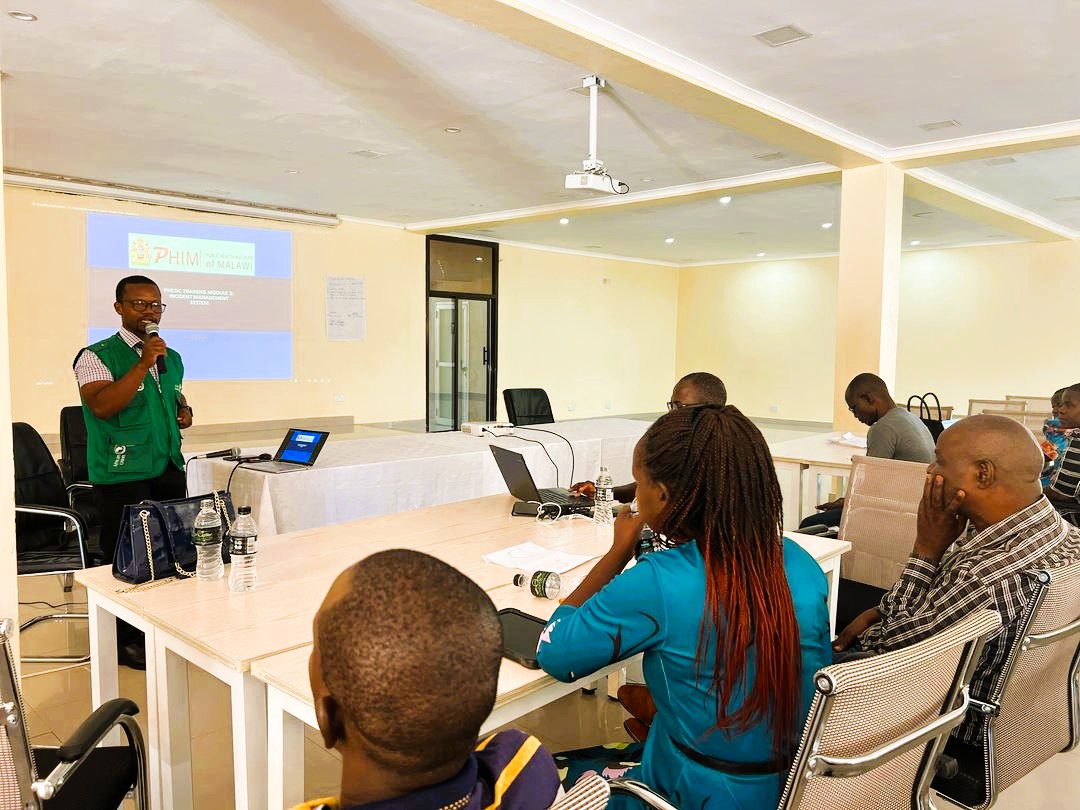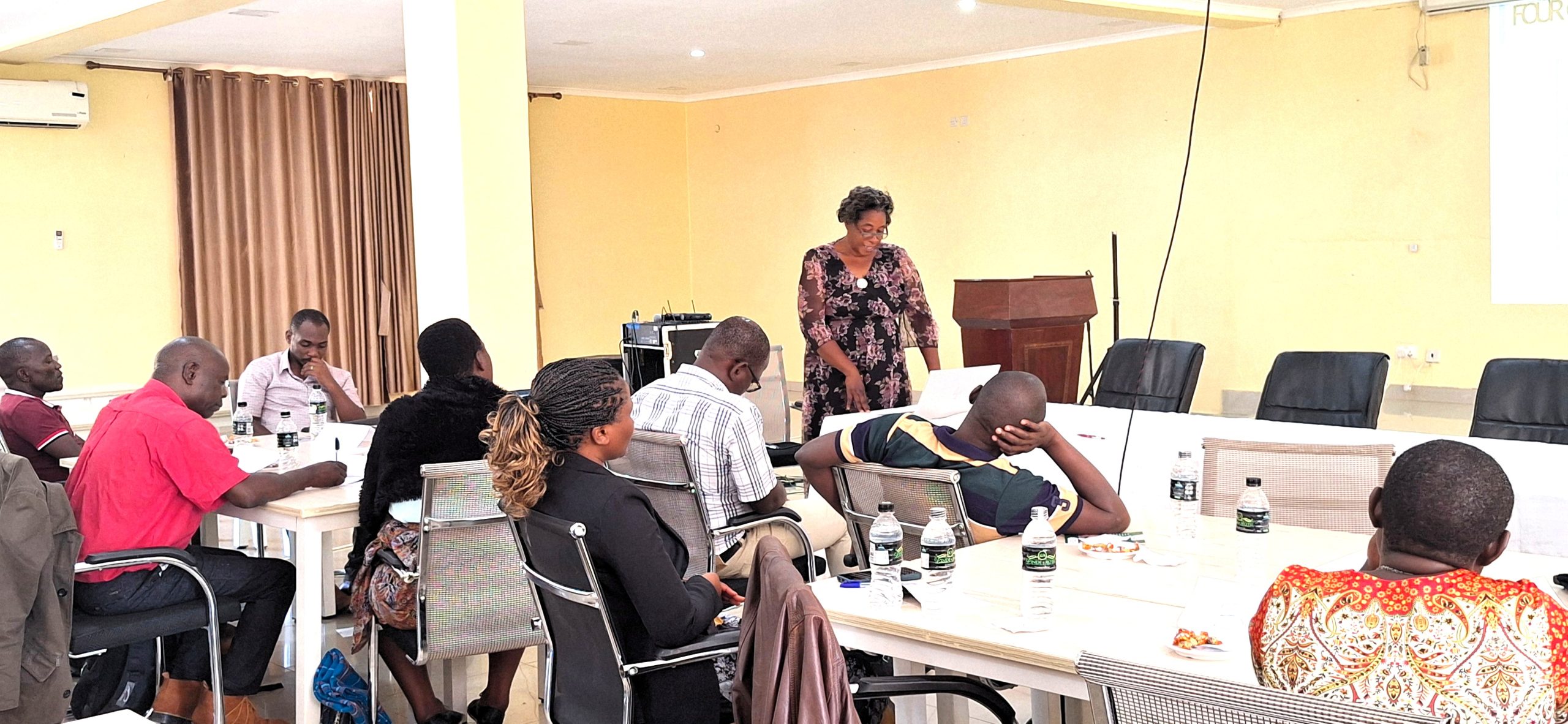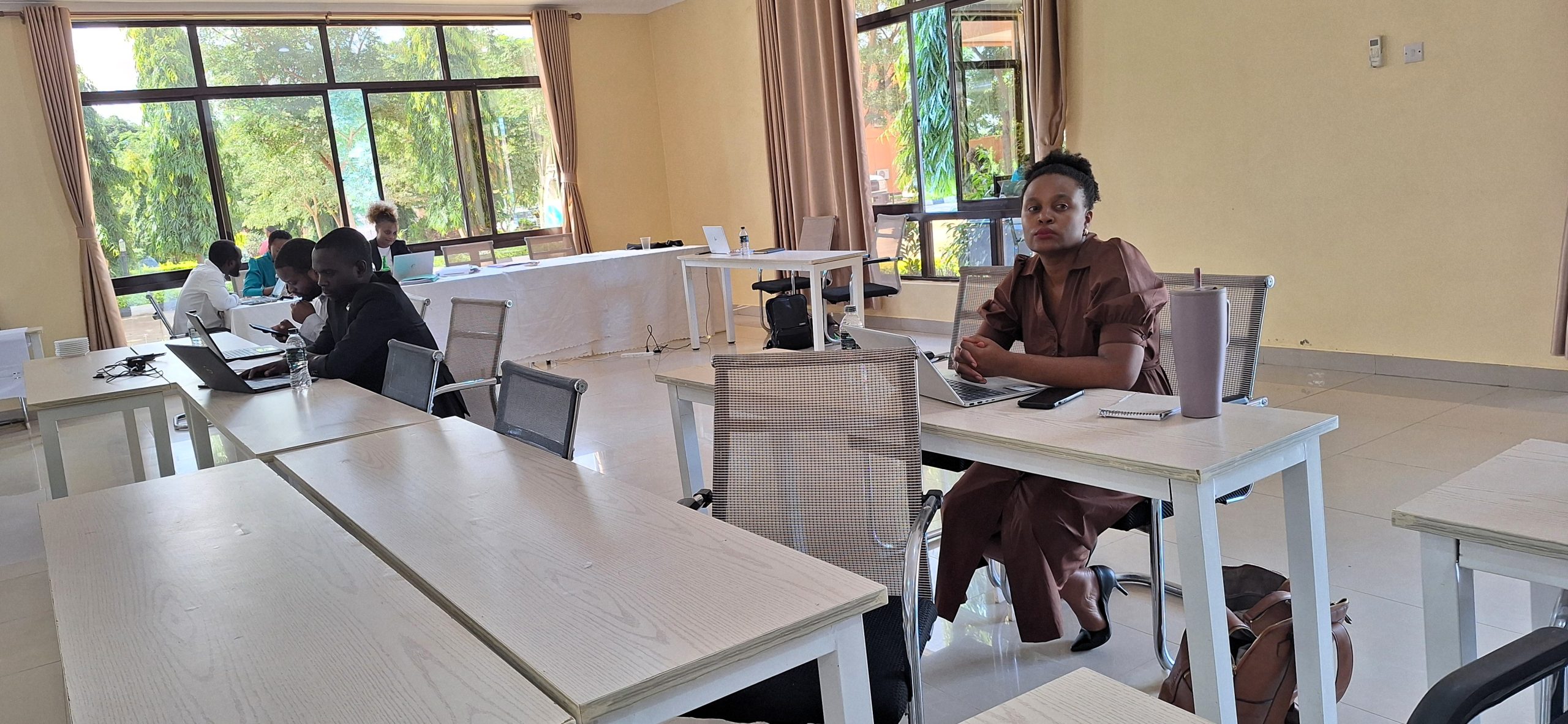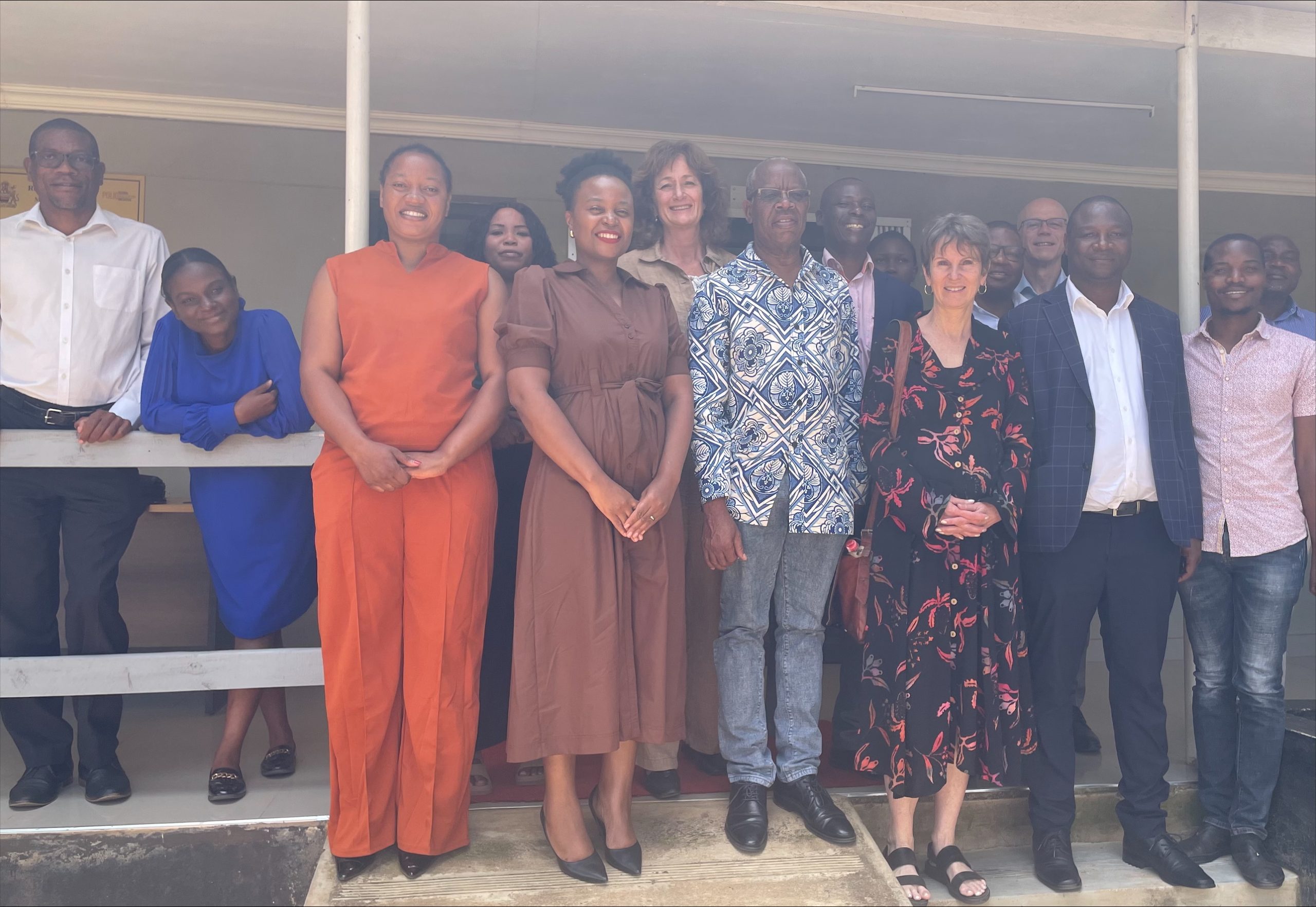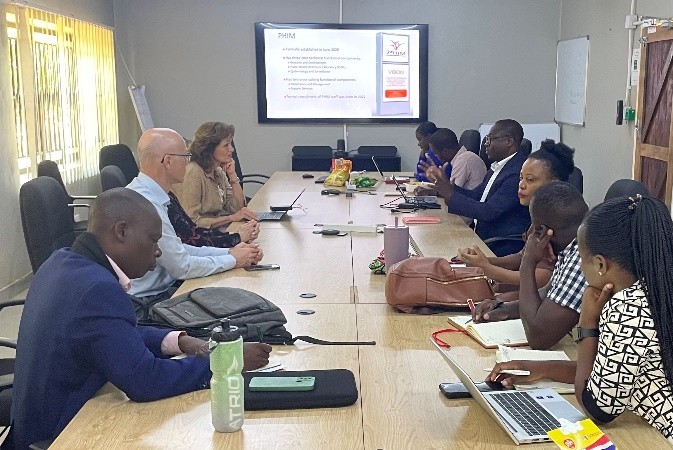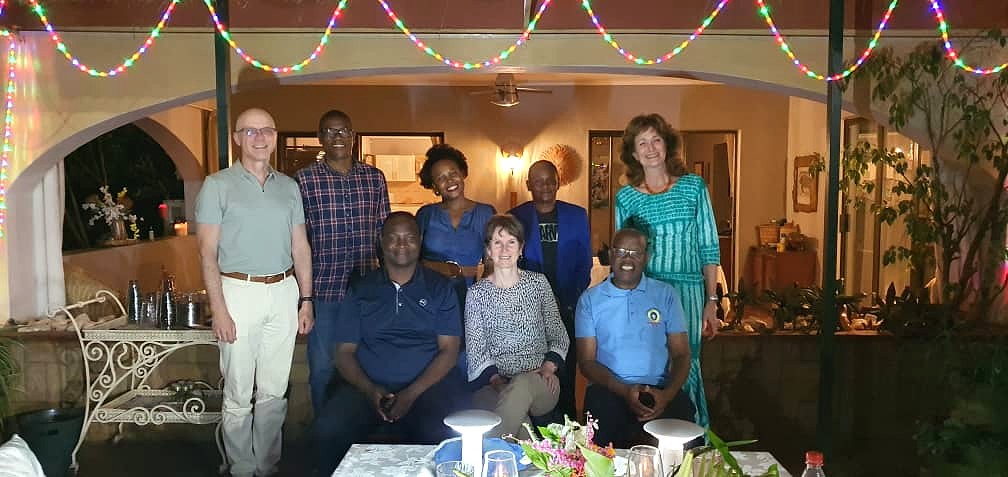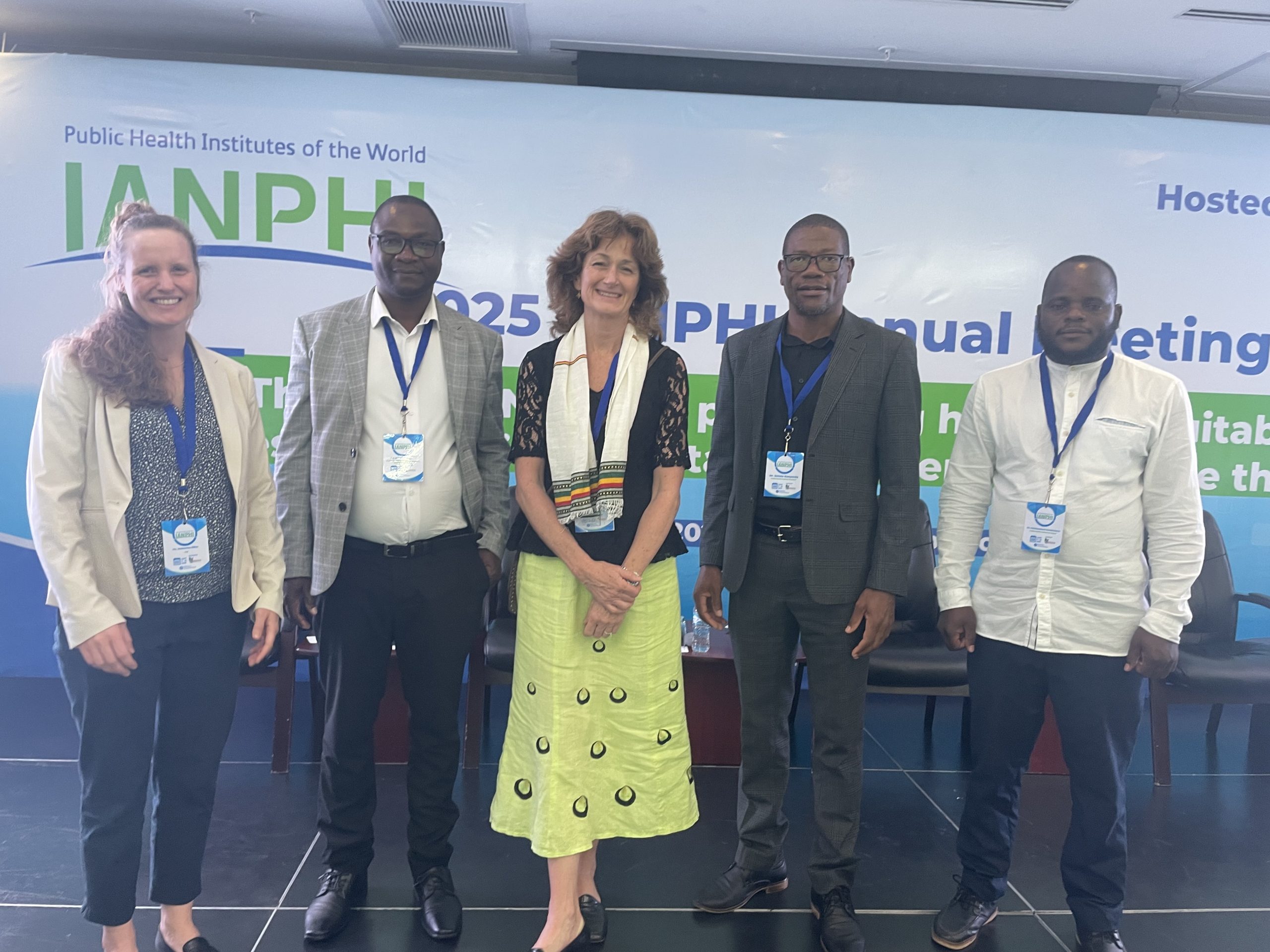
IANPHI ANNUAL MEETING
by
Settie Kanyanda in collaboration with Moses Nyambalo Phiri..
The IANPHI Annual Meeting was held from April 9 – 10 in Maputo, Mozambique and was hosted by the National Institute of Public Health (NIS) of Mozambique. The Annual Meeting was held under the Theme: “The role of National Public Health Institutes (NPHIs) in promoting healthy, equitable and resilient societies to tackle current and future threats”. The meeting was attended by over 200 attendees from different countries around the world, with fifty countries physically represented at the meeting while others joined the meeting virtually. Malawi was represented by a delegation from the Public Health Institute of Malawi (PHIM) led by Dr. Matthew Kagoli, Director of PHIM, and accompanied by Dr. Dzinkambani Kambalame from Research Division and Setiala Kanyanda, Technical Advisor to PHIM Director. Also joining the team from PHIM were Dr. Guri Rørtveit, the Director General of Norwegian Institute of Public Health (NIPH), Dr Trude Arnesen and Dr. Bjorn Iversen from the NIPH, and Katarina Dihm from GIZ, Malawi Country Office
Several speakers at the meeting who included the Minister of Health of the Republic of Mozambique, H.E. Dr. Ussene Isse, the president of IANPHI, Prof. Duncan Selbie, the Director General of Africa CDC, Dr. Jean Kaseya, pointed out some global health threats like climate change and increased frequency of diseases as health threats which require multilateral corporations and use of scientific intelligence to address.
Some of the challenges affecting Africa include an unprecedented health financing crisis and rising disease outbreaks such that there has been a 41% increase in disease outbreaks from 2022 to 2024. Other problems include vulnerability of health systems, less domestic resources, insecurity and humanitarian crisis. The problem of health financing is evident in that only six out of the 55 countries in Africa have a national health financing plan.
The withdrawal of the USA from WHO has left a gap in financial power and has created a need for other countries or organizations like the European Union to come in and provide support to strengthen the WHO activities. Global economic crisis makes health suffer where women, children, and the elderly suffer most.
That will therefore have negative consequences for global health. Public health financing is therefore key in addressing global health threats and such finances should be properly prioritized. To be successful, NPHIs should look for traditional funding through public – private health financing and regional financing to strengthen primary health care including community health surveillance. Public Health Institutes (PHIs) are therefore key in addressing these global health challenges and this highlights the need for every country to have its own PHI. Currently, IANPHI has a total of 128 member institutions from 107 countries including Malawi. Seven new members which are Siera Leon, Mali, Venezuela, Kenya, Uganda, Singapore and Northern Ireland were presented with certificates during the meeting.
Before the establishment of NPHIs, outbreaks were being responded to by ad hoc committees and at the end of the outbreak, the committees were dissolved resulting in loss of institutional memory which is not the case with NPHIs. The NPHIs have proper and well-organized mechanisms for responding to disease outbreaks and other global health threats. The NPHIs are supposed to collaborate with each other so that they can become stronger together to be able to protect and improve the health of the people.
One of the focus areas that IANPHI is also making efforts on is addressing the impacts of climate change which include flooding, heat, and wildfires. As a way of showing its commitment to dealing with effects of climate, IANPHI signed a Memorandum of Understanding (MoU) with the World Meteorological Office (WMO) in December 2024. Some NPHIs like Austria NPHI has already established a competence center on climate and health which bundles interdisciplinary expertise from research, policy and practice at the interface of mitigation, adaptation, health promotion and health systems.
The Austria NPHI also developed a national heat action plan using the modular design based on WHO recommendations to assist in its response to extreme high weather conditions. Climate and health problems call for a need to advocate for strengthening capacity of NPHIs to contribute effectively to climate and biodiversity. NPHIs therefore need to collaborate with international and regional organizations in the field of climate change. Mayotte Island in the Indian Ocean suffered the effects of climate change when it experienced a lot of infrastructure damage from Cyclone Chido.
This damage affected response activities since communication structures for data sharing were also down and this resulted in the use of paper-based data collection which caused delays in timely sharing of data. This therefore requires advocating for investment in resilient infrastructure and community training.
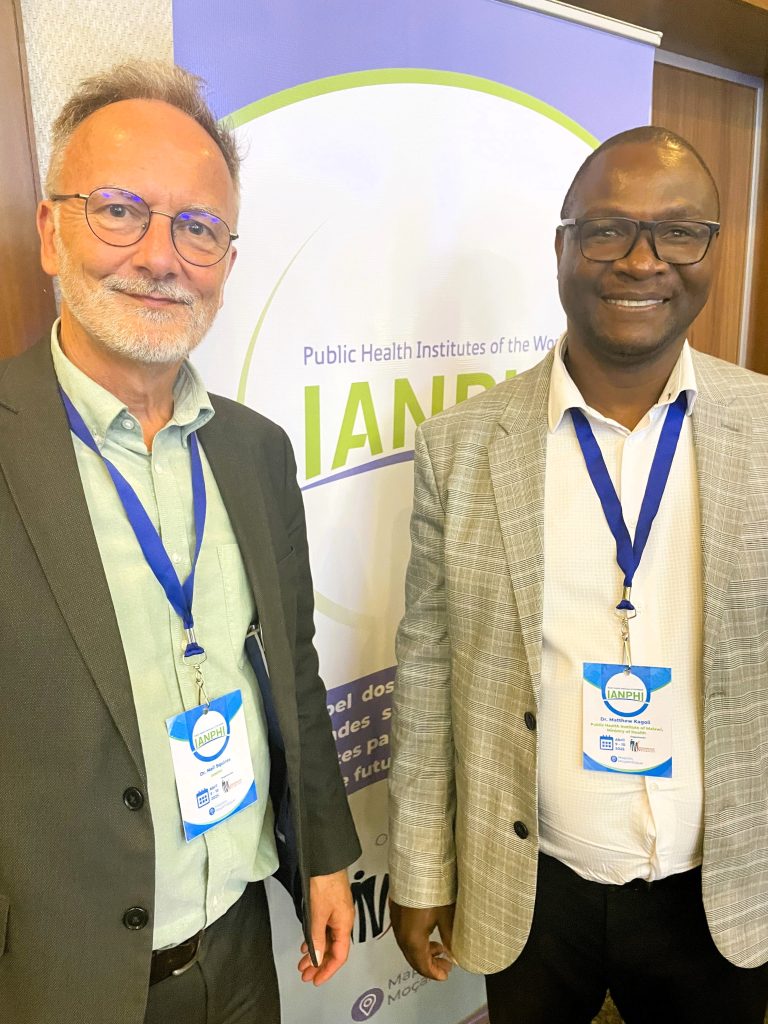
Dr. Kagoli with the new Secretary General.
It was interesting to note that IANPHI presented certificates of recognition of success to one IANPHI member per IANPHI Regional Network for the outstanding research projects they did. This serves as motivation to do more and to do better. The certificates were given to Finish Institute for Health and Welfare in Europe, Mexico NPHI in Latin America, National Institute of Health of Mozambique in Africa and Korea Disease Control and Prevention Agency in Asia.
During the meeting, a declaration was developed which will be called “Maputo Declaration” which aims at making a call to action to address public health issues. This declaration will be a strong tool in strengthening Public Health and Public Health Institutes.
A visit to the National Institute of Health of Mozambique, revealed how far the institute has come from. It started as a Medical Research Institute of Mozambique in 1955 and has over the years changed names and its responsibilities until in 2017 when it was re-defined as a Public Health Institute. It currently has offices in all the provinces of Mozambique which are headed by a director.
These provincial offices also have provincial laboratories where clinical laboratories transport the samples to the provincial laboratories and if need be, the provincial laboratories transport the samples to the Reference Laboratories. One of the key areas of focus for the INS is research whereby in 2024 alone, a total of 80 publications were made and it currently has 65 research projects underway. This is made possible through its collaborations with both local and international research institutions.
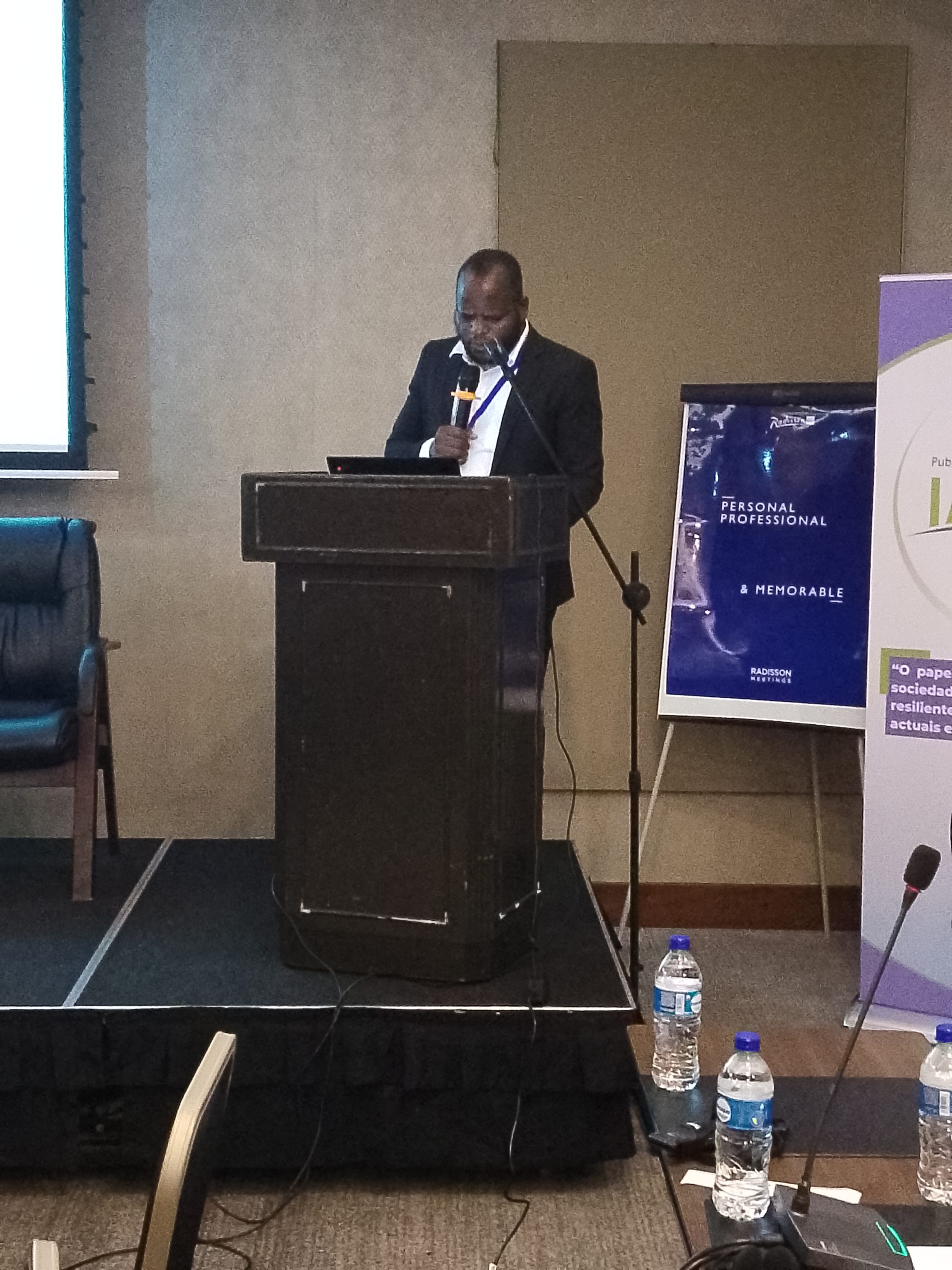
Dr. Zinkambani Kambalame, Head of National Public Health Research Science -PHIM, giving a presentation.
In Malawi, the partner for this project is GIZ. During the meeting, Dr. Dzinkambani Kambalame made a presentation on Malawi specific activities. The project is expected to commence in 2025
Team Europe organized a side meeting for a project it is carrying out to support and strengthen selected10 African National Public Health Institutes which include PHIM. The project areas include networking and collaborating with other PHIs, gender transformative research, development of policy advice for policy change, digital literacy, and Sexual and Reproductive Health Rights (SRHR) surveillance framework.
